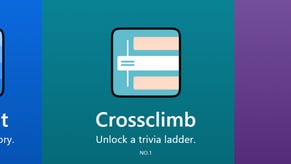Microsoft, EA, Activision, Ubisoft and Epic face game addiction lawsuit
Arkansas family suing gaming giants for their child's excessive playtime and spending
Four of the biggest companies in the industry have been targeted by a lawsuit accusing them of enabling video game addiction.
A complaint filed on October 30 in the Eastern District of Arkansas, spotted by Insider Gaming, names Microsoft, EA, Activision, Ubisoft, and Epic Games, as well as some of their studios, as defendants.
The suit lists 14 counts of action, including strict liability and negligence for failure to warn users of games' addictive qualities, deceit and fraudulent misrepresentation, fraudulent inducements and violation of the Deceptive Trade Practice Act.
The full list of defendants include:
- Activision Blizzard, including Infinity Ward, Treyarch and Sledgehammer Games
- Microsoft Corporation
- Epic Games
- Electronic Arts, including EA DICE
- Ubisoft, including Ubisoft Montreal
The lawsuit states that a "rapid spread of video game addiction" is the result of these companies' "concerted effort to get consumers addicted" to their games in order to generate high profits.
The plaintiff, an Arkansas mother, filed the suit on behalf of her child – a minor identified only as G.D. – and her husband, the minor's father.
According to the filing, G.D. is 13 years old and plays video games 12 to 14 hours per day, despite parental efforts to limit this time. He primarily plays Fortnite, Rainbow Six: Siege, Battlefield and Call of Duty and is said to have spent approximately $350 per month on gaming.
In total, it is claimed G.D. has spent around $3,000 on in-game transactions and downloadable content – not including the costs of consoles, games, and an Xbox Game Pass Ultimate subscription.
"Defendants manufactured, published, marketed, and sold video games, including those played by G.D., that Defendants had specifically developed and designed to cause the addiction experienced by G.D. and other users."
The plaintiff is seeking damages for, among other things, injuries G.D. has sustained as a result of his addiction (e.g. physical pain in his hands, elbow and shoulders) and the necessary care, the parents' economic loss, statutory and punitive damages, and legal fees. The amounts are expected to be determined in court.
The 129-page complaint goes into detail about the various microtransactions and monetisation schemes the plaintiff believes get minors addicted to video games, including loot boxes, pay-to-win transactions, and 'rubber banding,' whereby "the 'difficulty' of a monetised game may be considered analogous to the player's cost sensitivity or the willingness of the player to make continued in-game purchases."
The suit also cites 16 patents that affect minors and their in-game spending, including:
- an Activision patent for customised messaging campaigns based on a player's behavioural data, e.g. delivering promotions for microtransactions or DLC triggered by how many matches they win or lose
- another Activision patent for modifying the difficulty of multiplayer matches in a way that will encourage microtransaction purchases. For example, putting players with premium items into a match with those who might consider buying them
- a Microsoft patent notifying players that they will not unlock an achievement in a demo or trial version of a game unless they purchase a full title
- an EA patent for allowing newer users to purchase in-game support more cheaply than experienced players
Other patents cited were filed by Sony, Disney, Kabam, Hasbro, Leviathan Entertainment and Aftershock Services.
The lawsuit also explores who monetisation schemes are designed to attract 'whales,' how cloud gaming "enhances defendants' predatory activities" by opening up more access to their games, and how the defendants and their monetisation have created "a generation of gaming addicts."
In 2019 the World Health Organisation recognised 'gaming disorder' as an official illness, although the WHO deliberatly avoids using the word 'addiction.'









